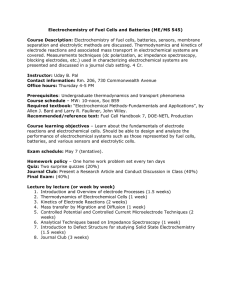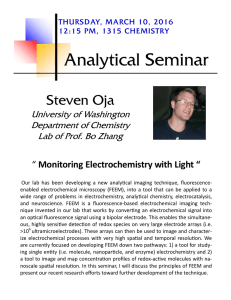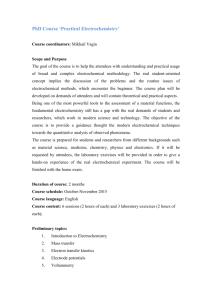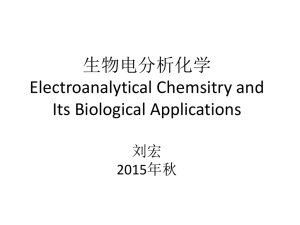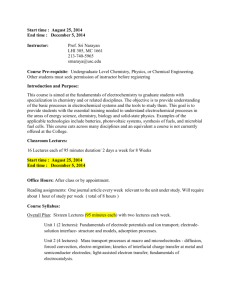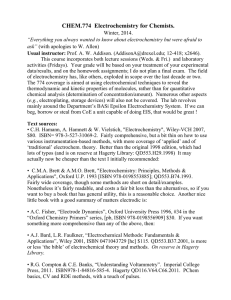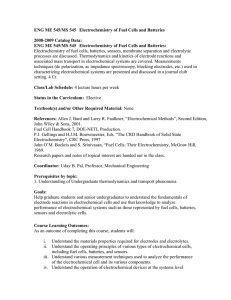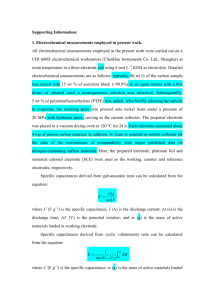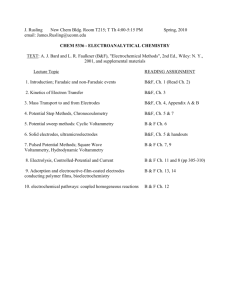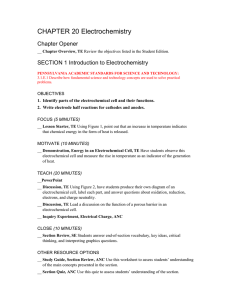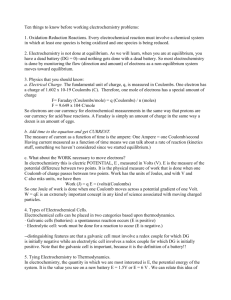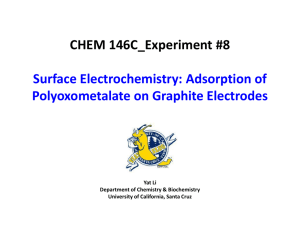PhD Course *Applied Electrochemistry*
advertisement
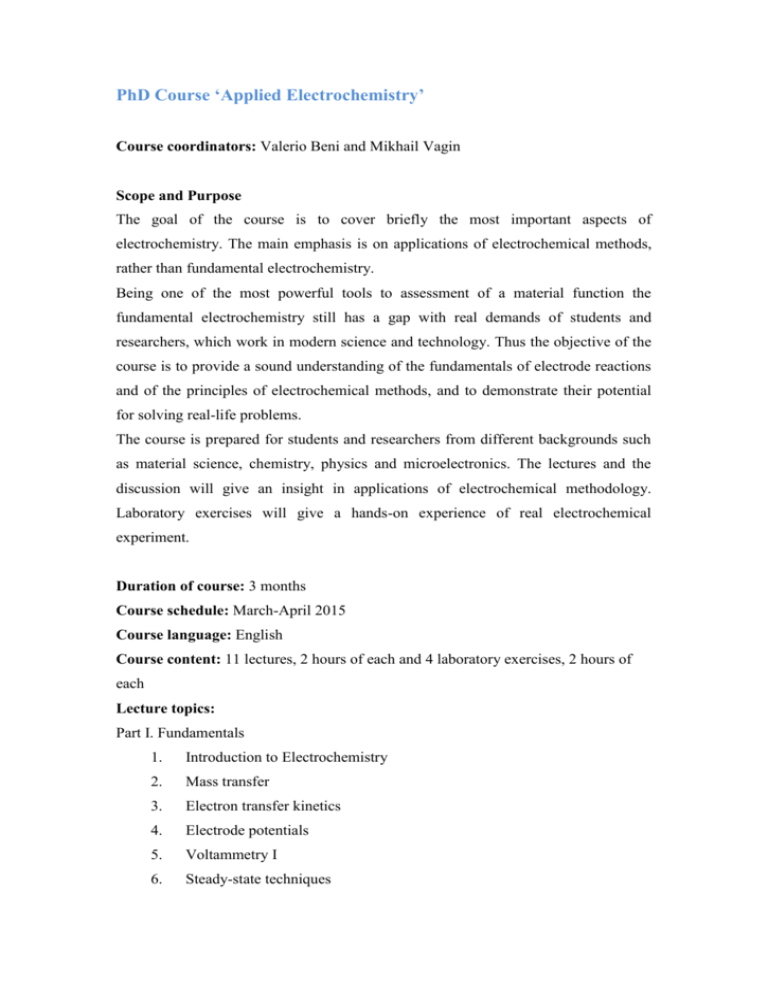
PhD Course ‘Applied Electrochemistry’ Course coordinators: Valerio Beni and Mikhail Vagin Scope and Purpose The goal of the course is to cover briefly the most important aspects of electrochemistry. The main emphasis is on applications of electrochemical methods, rather than fundamental electrochemistry. Being one of the most powerful tools to assessment of a material function the fundamental electrochemistry still has a gap with real demands of students and researchers, which work in modern science and technology. Thus the objective of the course is to provide a sound understanding of the fundamentals of electrode reactions and of the principles of electrochemical methods, and to demonstrate their potential for solving real-life problems. The course is prepared for students and researchers from different backgrounds such as material science, chemistry, physics and microelectronics. The lectures and the discussion will give an insight in applications of electrochemical methodology. Laboratory exercises will give a hands-on experience of real electrochemical experiment. Duration of course: 3 months Course schedule: March-April 2015 Course language: English Course content: 11 lectures, 2 hours of each and 4 laboratory exercises, 2 hours of each Lecture topics: Part I. Fundamentals 1. Introduction to Electrochemistry 2. Mass transfer 3. Electron transfer kinetics 4. Electrode potentials 5. Voltammetry I 6. Steady-state techniques Part II. Preliminary topics (the content might be adjusted on a feedback from students) 1. Microelectrodes and Rotating Disk Electrode 2. Electrochemical Impedance Spectroscopy 3. Electroanalysis 4. Conductive polymers 5. Nanoelectrochemistry 6. Electrochemical Power (Electrochemical capacitors, photovoltaics, fuel cells etc.) Topics of practical trainings 1. Voltammetry I. Mass transfer (macro- and microelectrodes) 2. Voltammetry II. Voltammetry for the elucidation of reaction mechanisms 3. Electroanalysis 4. Impedance spectroscopy. Course plan: Number of lectures: 12, which will be given by teachers and the invited experts. Duration of each lecture is 2 hours, which will be divided in 1 hour of lecture and 1 hour of discussion. The first part of the course is dedicated to fundamentals of electrochemistry. The short test of understanding will be carried out at the end of the first part. The schedule of topics of second part will be constructed after the discussion with students based on their inquiries. The teachers will send lecture materials of the course to each student prior the lectures. The students will have to prepare questions and send them back to teacher before the lecture as a feedback. Teacher and students will discuss all questions during discussion hour of lecture. Number of laboratory exercise: 3, which will be given by teacher during course period in conjunction with delivered lectures. Duration of each exercise is 2 hours, which will be divided in 1.5 hour of laboratory work and 30 minutes of discussion. The teacher will send details of exercise to each student in advance. The students will have to prepare questions and send them back to teacher before the exercise as a feedback. Teacher and students will discuss all questions during discussion time. Estimation of time (in hour/student) Lectures: 12 x 2 = 24 Lecture preparation: 11 x 8 = 88 Practical exersices: 4 x 2 = 8 Practical exercise preparation: 3 x 8 = 24 Examination: 24 Total time: 168 Total credits 6 ECTS Target groups PhD students from chemistry, physics and material science. Examination and grading Grading will be assessed on the attendance and active participation in discussions Text and reference books 1. Electrochemical Science and Technology. K.B. Oldham, J.C. Myland, A. Bond. Wiley 2012; 2. Electrode Dynamics. A.C. Fisher. Oxford University Press, 2009; 3. Electrode Potentials. R.G. Compton, G.H.W. Sanders. Oxford University Press, 2009; 4. Electroanalysis. C.M.A. Brett, A.M.O. Brett. Oxford University Press, 2009. Contact Persons Dr. Valerio Beni Dr. Mikhail Vagin Assistant Professor Postdoctoral Researcher Biosensors & Bioelectronics Centre Dept. of Physics, Chemistry and Dept. of Physics, Chemistry and Biology (IFM), Linkoping University Biology (IFM), Linkoping University S-58183, Linkoping, Sweden S-58183, Linkoping, Sweden e-mail: mikva@ifm.liu.se e-mail: Valerio.beni@liu.se Phone: +46 (0)70 2753087 Phone +46 (0)13 286629
